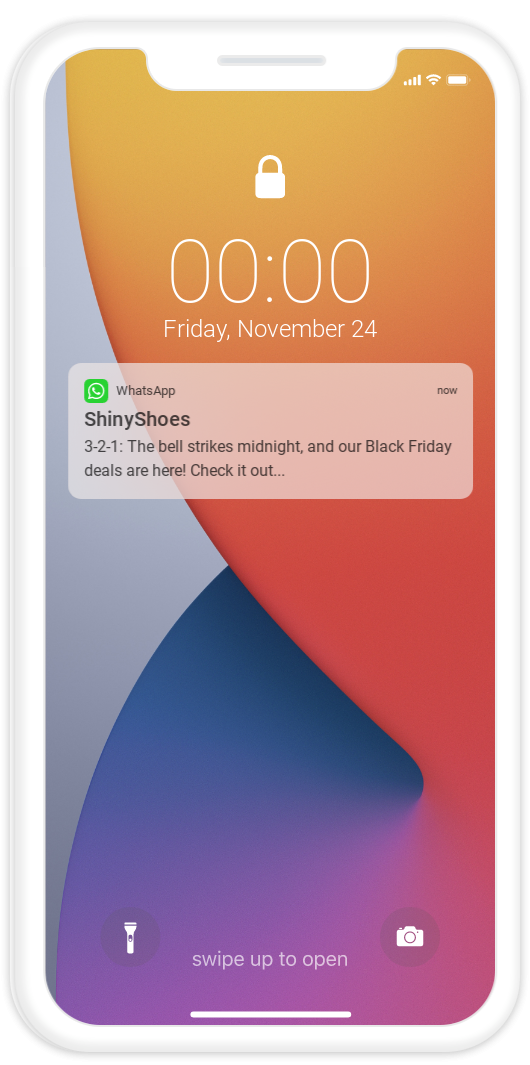Conversations
The “WhatsApp Phenomenon”: What’s behind the sudden rise of WhatsApp in the U.S.

Conversations

The messaging world in the U.S. has been dominated by Apple’s iMessage and SMS. This dynamic is being shaken up right now — by WhatsApp. In recent years, WhatsApp has consistently grown in popularity and seems to be really taking off in the U.S. in 2024. We take a closer look at the reasons behind this change and WhatsApp’s potential in the U.S.
WhatsApp has more than two billion users globally. It’s the second most popular social media network in the world. And yet, in the U.S., WhatsApp’s home base, the Meta-owned messaging app has never been as widely adapted as iMessage, SMS, or even Facebook Messenger.
This is currently changing. As Meta CEO Mark Zuckerberg announced in the company’s latest quarterly report, 2024 will be the year of WhatsApp in the U.S. And numbers and user behavior suggest he’s right.
There are currently 98 million WhatsApp users in the U.S. According to Apptopia, as reported by Big Technology, WhatsApp’s daily active users grew by 9% in the U.S. in 2023, with 50% of WhatsApp users chatting daily on the app and 78% at least weekly.
In the second quarter of 2022, the messaging app had 6.6 million downloads in the U.S. from Apple’s App Store alone, making it the country with the most WhatsApp downloads in that time period.

In recent years, cities like Washington D.C. and New York City have actively taken to WhatsApp to either communicate among staff or to reach more citizens. Clearly, WhatsApp is gaining some traction. But before 2022, many Americans had never heard, let alone used WhatsApp.
What happened?
There are actually several factors that led to the growing popularity of WhatsApp in the U.S.
While iPhones and iMessage are hugely popular in the U.S., both, iOS and Android users, have had their fair share of frustration with the other operating system.
Sometimes, messages don’t get through. And then, including both, iPhone and Android users, in a group chat is basically impossible. This might have been okay for users while messaging capabilities were limited to mostly text.
However, as text messaging started to become richer, adding multimedia capabilities and interactive features like emojis and reactions, the lack of interoperability became increasingly frustrating for users.
Let’s say you’re an iPhone user getting a message from your friend who happens to use an iPhone. You react to their message with a heart emoji. Well, the Android user doesn’t see the reaction, but gets an awkward text that says “your friend reacted to your text message with a heart emoji”.
These experiences are starting to bother users. And Tim Cook’s famous suggestion for people to “just get an iPhone” to fix the problem, didn’t really help.
So, people started discovering WhatsApp as a convenient way to solve these problems. WhatsApp works equally well on Android and iOS devices and there’s also a convenient web version that makes it easy to communicate with everybody.


Simply put, there’s no green vs. blue bubble war happening on WhatsApp, and people can do what messaging is really meant for: chat with one another.
Another phenomenon that has contributed to the rise of WhatsApp in the U.S. is people getting tired of public discussions on social media.
Issues, such as algorithms that have taken over what users see on their feeds or spammy bots, have caused more users to move away from public threads to more private group chats. One popular choice here is WhatsApp.
WhatsApp groups can have up to 1,024 users, offer a smooth chat experience, and work for any device. So, more users in the U.S. are starting to have their parents chat group, book club discussion, or podcast messaging board in WhatsApp.
The pandemic also played an important role in this development. As a large part of everyone’s life moved online, it also gave people a chance to try out new digital services and apps.
With the increased need to find easy and smooth ways to communicate with friends and family online during that time, many users in the U.S. discovered and stuck with WhatsApp.
With WhatsApp you can send messages from anywhere in the world to any location on the globe. There are no additional cost, no roaming fees, and you don’t need a different SIM card. All you need to send or receive WhatsApp messages is an internet connection.
This was an important factor during the pandemic as an easy way to stay in touch with friends and family abroad, but also after the pandemic with international travel picking back up and people calling or sending pictures and videos to loved ones.
Around the same time, in 2022, WhatsApp started to see more potential for WhatsApp in the U.S.
Football fans might remember the “Doubt Delivered” WhatsApp commercial that premiered in 2022 during the NFC championship game and was also shown during that year’s Super Bowl.
Its main message: WhatsApp is safer than SMS. Although that’s not entirely true, it shows Meta’s attempt to show U.S. users why they should switch to WhatsApp. According to Mark Zuckerberg, the company is planning to build on this and invest more into the growth of WhatsApp in the U.S. in 2024.
However, it’s not only private users in the U.S. that are discovering WhatsApp. Businesses are also starting to notice the potential of the messaging app.
In 2023, the number of daily users of WhatsApp Business (WhatsApp’s business version of the app) grew by 80%, after it already grew by 122% in 2022. That’s because WhatsApp offers unique possibilities for customer communication.
For one, as most people use WhatsApp to talk to friends and family, the tone on WhatsApp is very friendly and informal. This gives businesses a unique chance to build close and trusting relationships with customers from the very first chat interaction.
There are also many interactive features for businesses. Companies can send videos, voice messages, and even broadcast on WhatsApp. In addition, businesses can set up a company profile, upload a product catalog, and add important information like their business hours.
On the more advanced business interface of WhatsApp, the WhatsApp Business Platform (API), there are even more possibilities. These include chatbots, integrating CRM systems, and sending out notifications, such as automated order confirmations, one time passwords, and marketing messages.

For businesses, that makes it a lot easier to have a valuable exchange with customers.
In other countries like Brazil or India, people almost exclusively use WhatsApp to interact with businesses: to order a cab, to get food delivered, and even to shop. In the U.S., more businesses like Zendesk are trying out WhatsApp to interact with customers.
As the popularity of WhatsApp is growing in the U.S., it’ll be interesting to see how businesses adapt the app in the future.